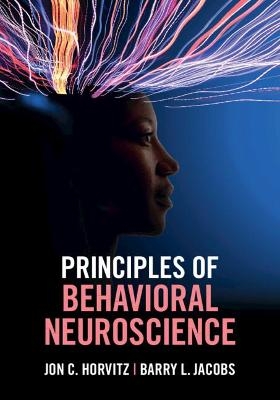
Principles of Behavioral Neuroscience
Cambridge University Press (Verlag)
978-1-108-72078-6 (ISBN)
How does brain activity give rise to sleep, dreams, learning, memory, and language? Do drugs like cocaine and heroin tap into the same neurochemical systems that evolved for life's natural rewards? What are the powerful new tools of molecular biology that are revolutionizing neuroscience? This undergraduate textbook explores the relation between brain, mind, and behavior. It clears away the extraneous detail that so often impedes learning, and describes critical concepts step by step, in straightforward language. Rich illustrations and thought-provoking review questions further illuminate the relations between biological, behavioral, and mental phenomena. With writing that is focused and engaging, even the more challenging topics of neurotransmission and neuroplasticity become enjoyable to learn. While this textbook filters out non-critical details, it includes all key information, allowing readers to remain focused and enjoy the feeling of mastery that comes from a grounded understanding of a topic, from its fundamentals to its implications.
Jon C. Horvitz grew up in Philadelphia, and graduated from Haverford College before receiving his PhD in Psychology at the University of Calfornia, Santa Barbara. After post-doctoral work in neuroscience at Princeton University, he was a professor of psychology at Columbia University, Boston College, and now City College of New York/CUNY. A passionate teacher who enjoys finding ways to excite his students, his brain–mind courses have won many accolades. His research examines brain circuits underlying natural and drug rewards, and he has been a grant reviewer for the National Institute on Drug Abuse. He loves to play jazz piano. He and his wife regularly travel to Spain to visit her family. Barry L. Jacobs was a professor of psychology and neuroscience at Princeton University. He taught one of the university's most popular courses, 'The Brain: A User's Guide', and was a leading researcher in the areas of serotonin, sleep, and depression. He grew up in Chicago, graduated from the University of Illinois–Chicago, and received his doctorate in psychology from the University of California–Los Angeles. He was a postdoctoral fellow in the psychiatry department at Stanford University Medical School before coming to Princeton. He has taken joy in being a mentor to many young neuroscientists throughout the world.
Preface; Online resources; 1. Nervous systems; 2. How neurons work; 3. Sensory systems; 4. Movement; 5. Sleep-waking and circadian rhythms; 6. Hunger; 7. Sex; 8. Brain development and plasticity; 9. Long-term learning and memory; 10. Attention and working memory; 11. Reward, reinforcement, and addiction; 12. Stress, fear and anxiety; 13. Neuropathology in neurology and psychiatry; 14. Higher cognitive function; Index.
| Erscheinungsdatum | 04.07.2022 |
|---|---|
| Zusatzinfo | Worked examples or Exercises |
| Verlagsort | Cambridge |
| Sprache | englisch |
| Maße | 178 x 254 mm |
| Gewicht | 1350 g |
| Themenwelt | Geisteswissenschaften ► Psychologie ► Allgemeine Psychologie |
| Geisteswissenschaften ► Psychologie ► Biopsychologie / Neurowissenschaften | |
| Geisteswissenschaften ► Psychologie ► Verhaltenstherapie | |
| Naturwissenschaften ► Biologie ► Humanbiologie | |
| Naturwissenschaften ► Biologie ► Zoologie | |
| ISBN-10 | 1-108-72078-1 / 1108720781 |
| ISBN-13 | 978-1-108-72078-6 / 9781108720786 |
| Zustand | Neuware |
| Informationen gemäß Produktsicherheitsverordnung (GPSR) | |
| Haben Sie eine Frage zum Produkt? |
aus dem Bereich


